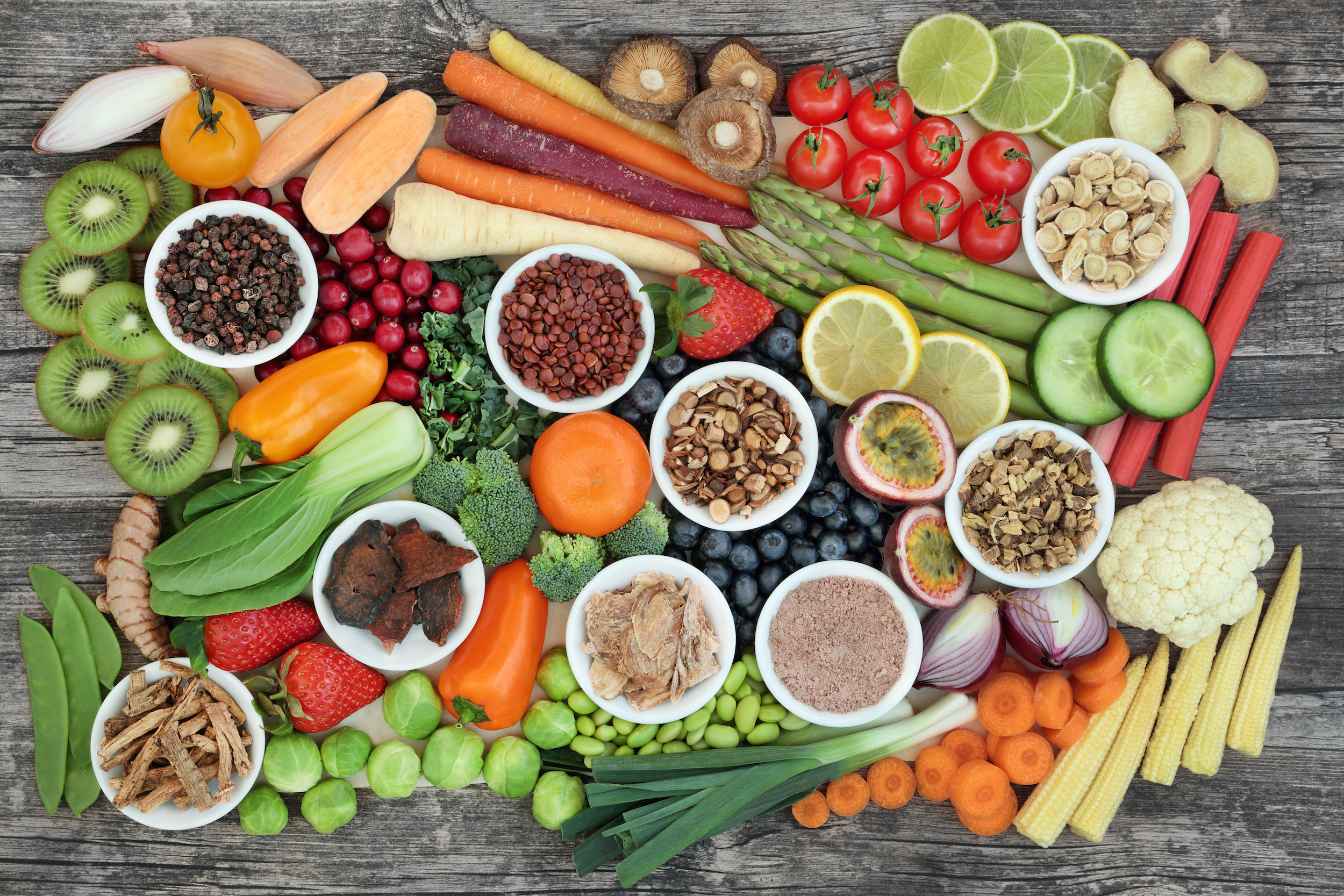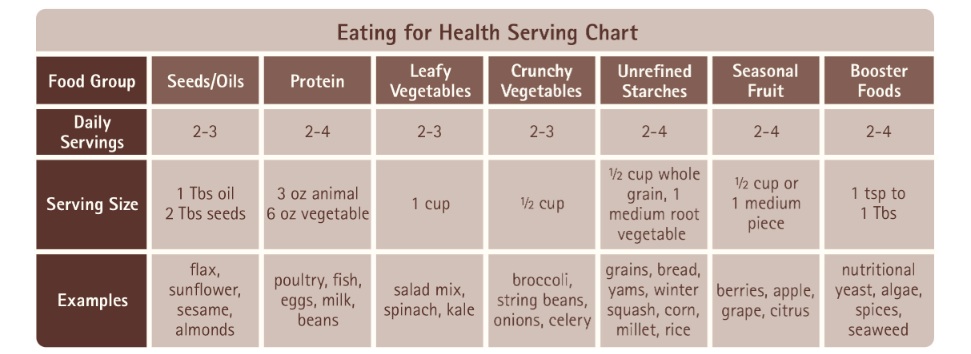The principles of Eating for Health are based on the premise that our cellular health is determined by the foods we eat. Damaged foods damage our cells. Fresh, healthy foods send the right messages to our cells’ DNA, encouraging healthy gene expression as well as efficient growth and repair – a process we call healing. The tragedy of losing one’s health can be traced, in large part, to a history of poor-quality food, insufficient nutrients, and exposure to dietary and environmental toxins.
The healthiest diet comes from S.O.U.L. foods (seasonal, organic, unprocessed, and local) that are suited to a person’s individual taste, temperament, needs, access to ingredients, and metabolic tendency. Eating for Health supports sustainable agriculture and non-GMO crops. One of the great strengths of the Eating for Health model is that it can be vegan or omnivorous, raw or cooked, and it can, and naturally will, evolve over time with changing circumstances.
For optimal health, disease prevention, and quick healing from illness or injury, it is best to eat about six servings a day of fresh or fermented vegetables and three servings a day of fresh or dried fruits or juice. We have our work cut out for us to get to this level. It means snacking on fruits, veggies, nuts, and seeds, rather than chips, cookies, candy, and crackers.

10 EATING FOR HEALTH TIPS
- Increase your intake of whole, real foods that are as fresh, organic, local, and as seasonal as possible.
- Eat protein by 10 am and 1-3 more times during the day to curb your sweet tooth.
- Decrease your intake of sugar and artificial sweeteners, junk foods, and refined flours to keep energy levels even, weight optimal, and inflammation low.
- Include a variety of colorful, raw, cooked, and fermented vegetables and fruits to provide ample micro- and phytonutrients, fiber, and beneficial bacteria for improved immune health.
- Boost the flavor and healing power of your meals with generous use of herbs and spices such as garlic, basil, parsley, cinnamon, curry, and ginger.
- Choose whole-food fats and their oils such as olives/olive oil; coconut/coconut oil; full-fat, organic dairy, butter and ghee; nuts and seeds; and avocados.
- Drink plenty of purified water each day and herbal teas as desired.
- Identify, remove, and replace reactive foods, which contribute to fatigue, weight gain, and mood disturbances.
- Move your body 20-30 minutes or more every day.
- Commit to eating more homemade meals with friends and family. Chew slowly, savor every bite, and let yourself and others eat in peace. Bon appétit!
Check out the original full article.
Already feel like you’re Eating for Health? Customize your meal plan with Bauman College’s “Diet Direction.”
Contributing article written by Dr. Ed Bauman, images courtesy of Bauman College.
Originally posted 2015-01-20 12:36:25.








